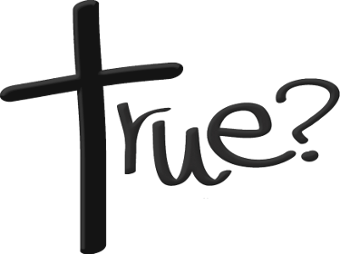Is Luke historically reliable?
The book which we are giving away thousands of copies of, across Nottingham University, is one of the four accounts of the life of Jesus, called Gospels, found in the Bible. Luke’s gospel was written by Luke, a doctor from a Greek-speaking, non-Jewish background. Luke had become convinced on the basis of eyewitness testimony that Jesus of Nazareth was more than a controversial Rabbi or popular religious teacher – but was in fact the Messiah spoken of in the Jewish holy scriptures (which make up the Old Testament in the Christian Bible). He was a travelling companion of the Apostle Paul for some years in the late 50’s – early 60’s AD, and also wrote the book known as “Acts” which records the history of the first thirty years of Christianity after Jesus’ death and resurrection.
In his gospel, Luke tells us his aim and methodology in the very first lines (see 1:1–4): He writes so that “Theophilus” (who may be a real person but is probably a way of saying ‘anyone who is interested’ since his name means ‘one who loves God’ in Greek) might have confidence in the truth of what he has been told about Jesus. To do this, Luke realises that bare assertions will not suffice, but reliable witnesses are required. Luke tells us he has taken the time to speak to eyewitnesses of the events concerned; people who knew Jesus personally and spent time with him. Some of them may well have been among Jesus’ disciples and family. He has also made use of the best historical documents available – it is likely that Luke has used some of the material in the even earlier Gospel written by Mark. His methodology, in other words, is the same as that used by the best and most trusted classical historians.
Luke writes in the style of a well-educated Greek of his time, and takes care to get his facts right. He uses the correct political, military and geographical terms even in the details of the events he describes – indicating he has not simply invented the world of his gospel and is not trying to write fiction. He is careful to try and place the events he describes into the wider historical context – for example in 3:1–2 Luke tells us who was the Roman Emperor, who the Roman and Jewish political leaders in Judaea were, and who the religious leaders in Jerusalem were at the time of John the Baptist and the start of Jesus’ public teaching ministry. And when we check these names against non-Christian historians of the time, they check out perfectly.
Historians in the first century respected the testimony of eyewitnesses; the good ones made sure they got the facts from the very best sources. Luke was one of those, and his account of the life of Jesus is - at the very least - an honest attempt by a man of integrity to get the facts right. He invites us, as people with integrity, to see what we make of them.
Not got a free copy yourself yet? Drop by our stall in Portland every day this week (14th-18th Feb) or request one delivered to you via the contacts page. It only take an hour or two to read, and the consequences of it being true are mindblowing!
For more information on the reliability of the New Testament, the Bible or the resurrection of Jesus, please visit:




